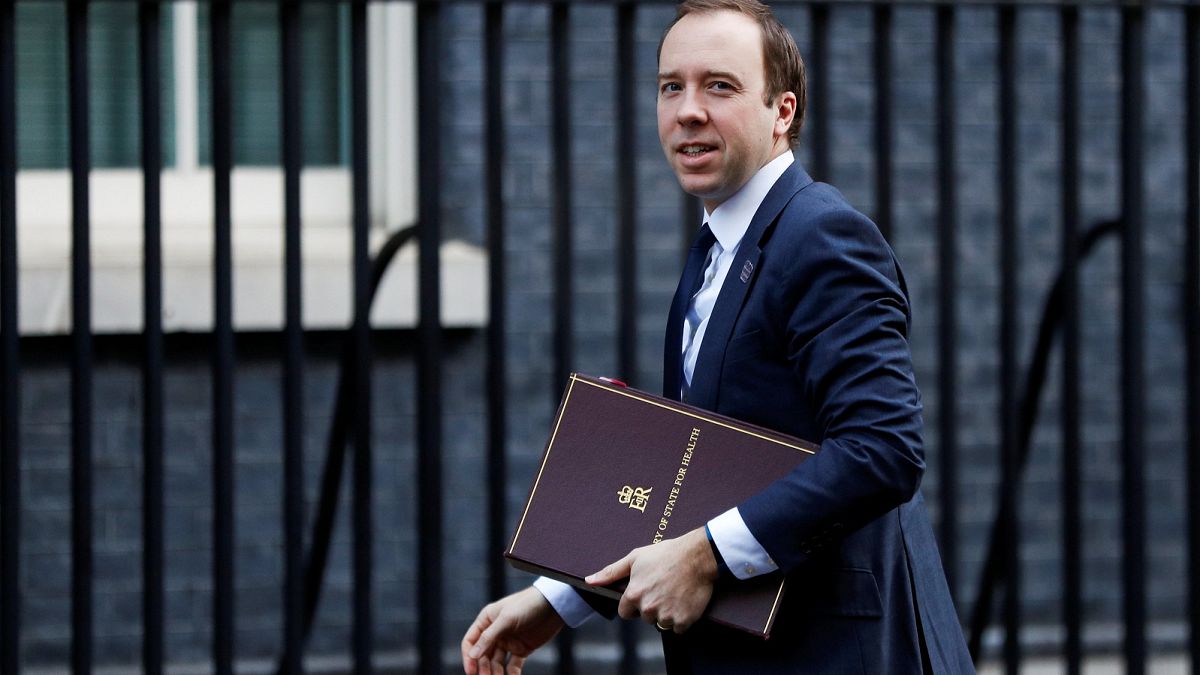UK health secretary Matt Hancock’s goal of England being the first country in the world with no new cases of HIV by 2030 seems ambitious at best - and unrealistic at worst.
England will see no new cases of HIV by 2030 according to a pledge made by the Matt Hancock, Secretary of State for Health and Social Care, in January. Whilst Mr Hancock’s comments may suggest that the UK government is working towards a reduction in the number of people being newly diagnosed with the virus, it is clear that many working within the HIV sector have their reservations.
Severe budget cuts over the past few years have resulted in sexual health services (including HIV care) being expected to do more with less. Fewer people are able to access timely sexual healthcare, and the service is now so under-funded that the goodwill of activists and the charity sector is relied upon to prop up vital services. Given that funding for the sector is in freefall, the health secretary’s comments may in fact be more of a dream than a reality.
When it comes to HIV, we have come a long way in a relatively short space of time. Many will remember the AIDS crisis of the 1980s, when fear and stigma engulfed those living with HIV and treatment of the condition was in its infancy. Every day, people lost their lives as scientists rallied to develop drugs to combat the virus. Today, those living with HIV are able to lead happy and healthy lives – rather impressive when you think there was no treatment available just a few decades ago. Whilst there is no cure to HIV, the chronic condition can be managed by anti-retroviral therapy, with those who have been on treatment for long enough no longer being able to pass on the virus to their partners.
But Matt Hancock’s announcement comes at a time of tension from within the HIV sector. A lengthy High Court battle in 2016 between activists and NHS England regarding the funding of a new preventative drug against HIV sparked anger towards the government from many quarters. Pre-Exposure Prophylaxis (PrEP) is a daily pill that prevents somebody else from acquiring an HIV infection, with various clinical studies proving its effectiveness. Despite this, it remains unavailable for people living in England, with only those who are part of an NHS clinical trial being able to take the drug for free. Those living in Scotland and Wales can benefit from free PrEP on the NHS, meanwhile those in England turn to online distributors for their supply.
So, when Matt Hancock pledged that he wanted to see now new cases of HIV by 2030, I was expecting him to announce that PrEP would be rolled out for free in England. Since activists have campaigned for it, and volunteers were helping people access the drug from reliable online suppliers, the rates of HIV fell across England. This was not as a consequence of any government intervention, but as a direct result of the goodwill of HIV activists, campaigners and allies. Whilst I agree that the effective treatment being taken by those currently living with HIV has also contributed to a reduction in new infections, PrEP is equally important.
In addition to PrEP, funding across the sexual health and HIV sector has been cut significantly over the past few years. The sector is under increasing pressure, with a growing number of people being unable to access timely sexual health care due to a lack of appointments at sexual health clinics and the closure of many local sexual health services. No concrete plans have yet been revealed by Matt Hancock about reversing these budget cuts, even though he seems passionate about reducing the rates of HIV. It seems clear that his vision for the eradication of the HIV virus in England, and his government’s stance on funding the HIV sector, do not match. I think we should also be concerned that the current work being done by activists and volunteers will soon become financially unsustainable without adequate funding from the government.
HIV transmission does not occur in a bubble. Alongside lengthy court battles and budget cuts, various societal factors contribute to HIV rates. Austerity has pushed a wedge between various groups within society, resulting in further inequalities in accessing healthcare for people from lower socio-economic groups. Moreover, stigma towards people living with HIV and misinformation about the virus continues to thrive. Educating the general public about HIV would help to reduce stigmatization, but this will require the government to invest in a robust national campaign. Given that public health now falls under the responsibility of individual local authorities in England rather than the NHS, I fear that any national campaign would need to be pushed forward by a national HIV charity – a sector still licking its wounds from the latest rounds of third sector budget cuts.
Matt Hancock’s goal of England being the first country in the world with no new cases of HIV by 2030 seems ambitious at best - and unrealistic at worst. His government’s ongoing budget cuts to the HIV sector has resulted in sexual health services being pushed to the brink of collapse, with activists being forced to pick up the pieces. PrEP remains inaccessible for many living in England, despite various studies proving its clinical and cost effectiveness in fighting the HIV virus. But for there to be a complete reduction in the rate of HIV, Mr Hancock will have to focus on both the medical and social aspects of the virus.
Stigma towards people living with HIV continues, as does misinformation about how the virus is transmitted. A national education campaign, alongside investment in preventative medication, might squash rates of transmission for good. However, these interventions can only be implemented with adequate funding from the government. Only time will tell if this can be achieved by 2030.
Hadley Stewart is a London-based writer, broadcaster and medical journalist
